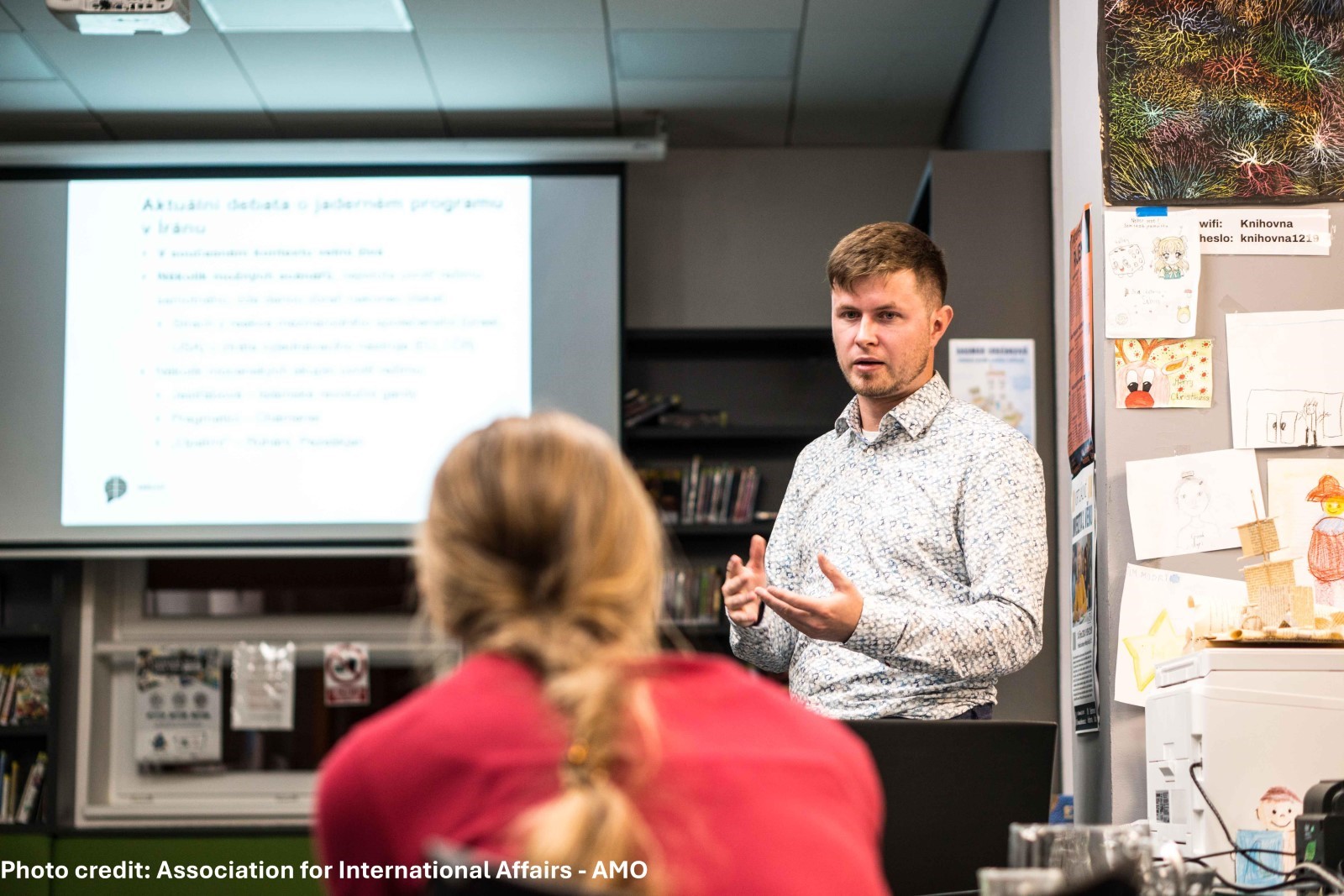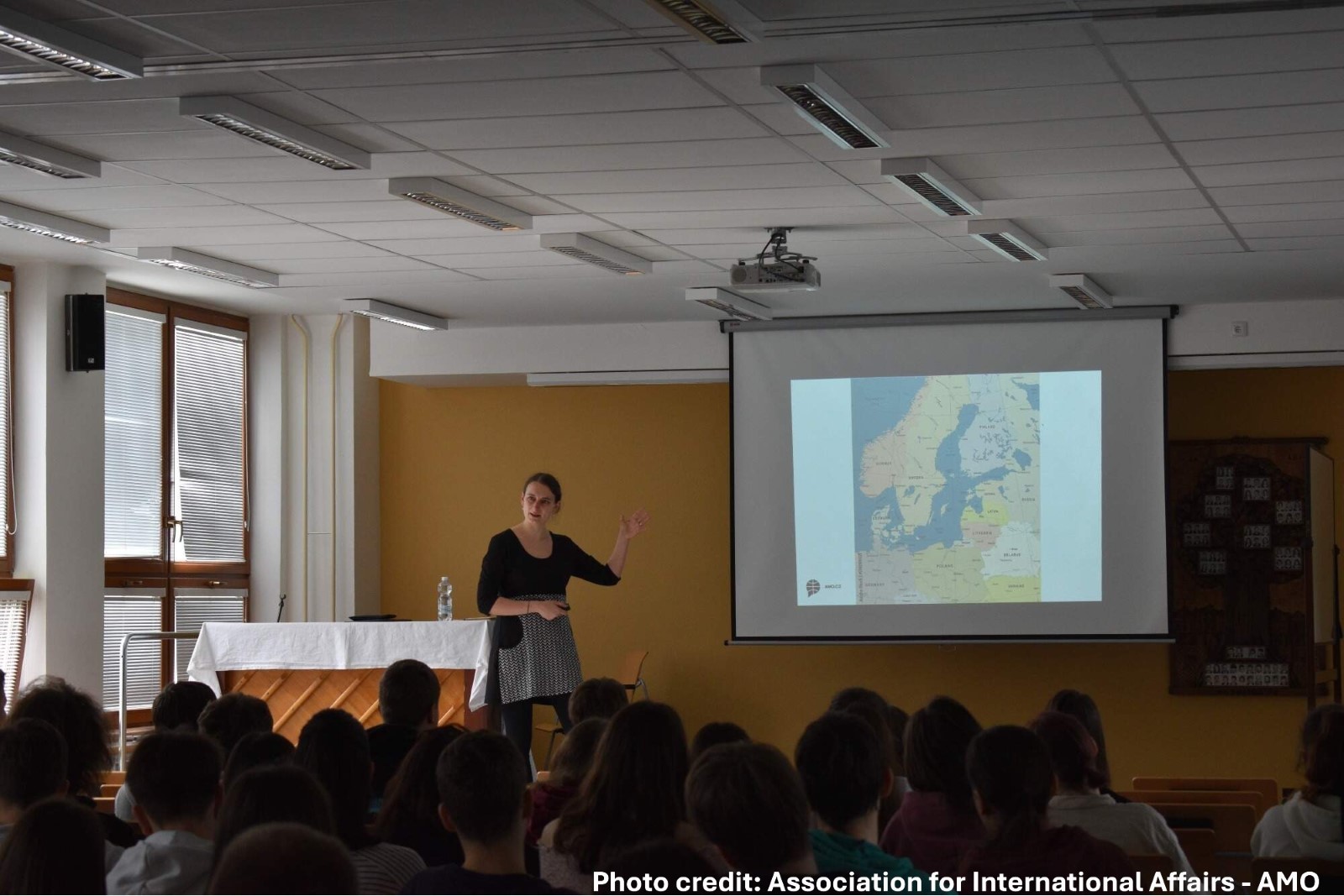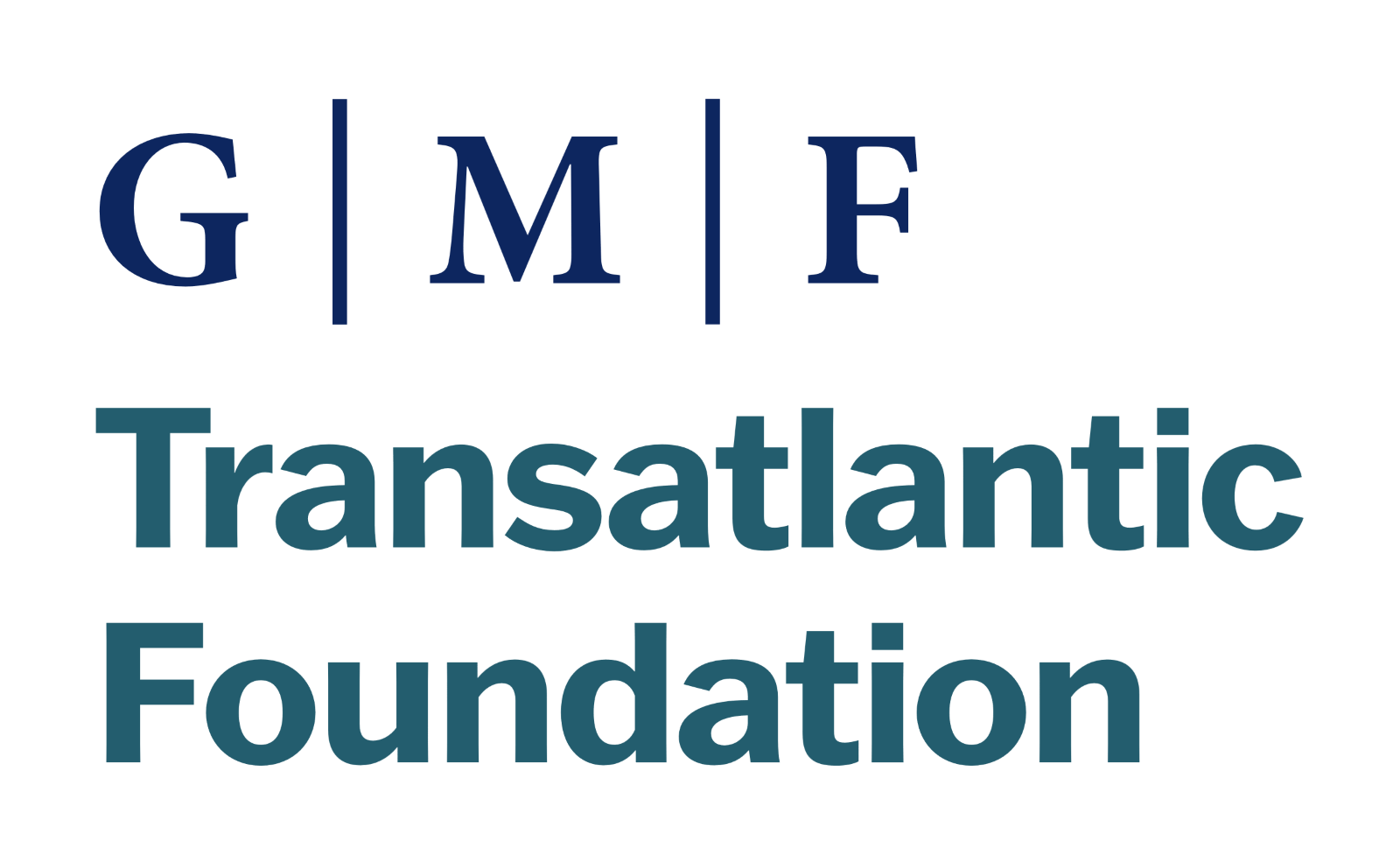Discussing Global Politics in Czechia’s Local Communities
Author: Vendula Kazlauskas, Association for International Affairs (AMO)
In an era of disinformation, clickbait headlines, media oversimplification, and social-media polarization, public debate on global challenges is increasingly fractured. In Czechia, the Association for International Affairs (AMO) think-tank has decided to counter this trend by bringing informed, expert discussions on foreign policy directly to the country’s regions. Through public debates in smaller towns, AMO is creating opportunities for people to engage directly with experts on current international affairs, such as the EU’s Green Deal, authoritarianism in Belarus, Middle Eastern geopolitics, and the war in Ukraine.

Based in Prague, AMO has limited local outreach and therefore collaborates with regional institutions—primarily local libraries—that are deeply connected with local communities. These provide not only promotional channels and logistical support but also a familiar setting for residents, many of whom may otherwise feel distant from discussions on international topics.
This cooperation has been crucial, and mutually beneficial. For libraries, which typically host lifestyle or literary events, the partnership expands their programming to include global issues that their visitors see in the news and are interested in, but do not have good access to beyond debates on social media or in pubs. Some topics, especially those closely linked with current affairs that are at the top of local audiences’ minds, have repeatedly brought more attendees than the local organizers expected, often requiring extra seating.
AMO’s events are highly interactive, allowing attendees to pose questions and sometimes shape the conversation in unexpected directions according to their interests, which can challenge the speakers. This format encourages honest, open dialogue and offers analysts a chance to address concerns that do not always emerge in expert circles. Occasionally, the debates attract attendees with more adversarial views or those influenced by pro-Russia narratives, but even they usually appreciate the openness of the debate and come to accept that situations are not as black and white as they initially imagined. This is another challenge for AMO experts, who must leave the Prague bubble to engage in these, sometimes quite difficult, conversations. Yet, it proves inspirational and beneficial, helping them understand the fears and concerns of people in smaller towns and bringing new insights to their work. People in the audience often stay after the debate ends to ask analysts further questions or some follow up with additional questions via email.
The lectures can have a lasting impact, and libraries and local partners frequently request another debate on a new topic. Their feedback often includes that local people continued discussing the topics in the following days, or borrowed books from the library related to the debated subjects.

In addition to these open public events, AMO has also conducted lectures for students aged 15 and older in schools across Czechia’s regions. Although young audiences can be challenging, the analysts’ stories and perspectives—which students do not normally hear—capture their attention. Some students even invite AMO speakers back for school projects and share the content of the discussions with their parents, underscoring the importance of addressing challenging topics and fostering open, intergenerational conversations. Once again, this engagement shows the importance of opening even difficult topics and leading a frank and open debate with people outside of major centers, proving the value of leaving the comfort of like-minded circles to engage the public, even in the face of contrasting viewpoints.
The “Czechia and the world: AMO discussions in the regions” project, supported by Engaging Central Europe in 2023–2025, is being implemented under the PROTEUS program and co-funded by the European Union. The views and opinions expressed are solely those of the author(s) and do not necessarily reflect those of the Transatlantic Foundation (TF) or the European Union (EU). Neither the EU nor TF can be held responsible for them.

